
E3 2012: MonkeyPaw Games and Gaijinworks Interview
On a bright and early Wednesday morning, I had the opportunity to sit down and interview Victor Ireland, president of Gaijinworks (this time face-to-face) along with John Greiner, president of MonkeyPaw Games. We covered a lot of topics during our long 45-minute conversation and it revealed some rather fascinating details about what exactly happened through the years between these two gentlemen.
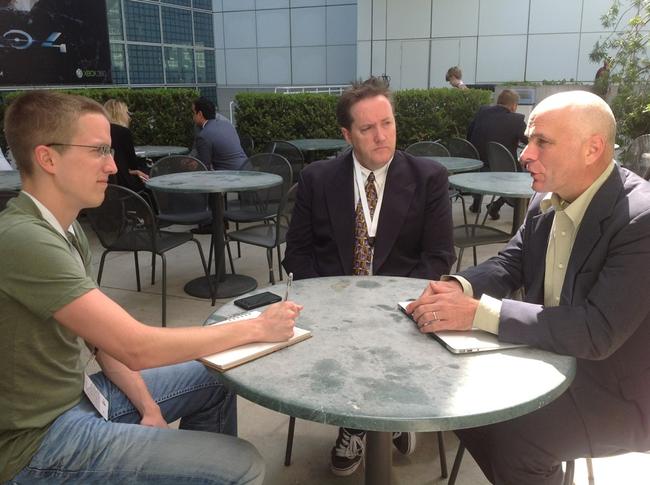
RPGSite: MonkeyPaw Games has been around for a while. [Vic], you moved over to Gaijinworks not too long ago as well and after a few years you started to get back in the video game business. Please explain the role of MonkeyPaw Games as it relates to the industry with your digital games and the relationship between you and Gaijinworks.
John: Well, little background. I used to work at Hudson Soft in Japan for 20 years. We had quite a bit of success. I moved to America in the last 5 years and we had a lot of success with digital downloads. In fact, it was kind of the glory of Xbox Live and whatnot. We had Bomberman Live and there was an obvious shift that the market was going to move to this. After Konami completed their ingestion of Hudson, it was easy to see where the market was going to go and that's how we started MonkeyPaw. And I've known Victor for, how many years? 15? 20?
Victor: 20... pre-TTI (Turbo Technologies, Inc., a company formed through a merger between NEC Japan and Hudson), actually.
John: Yeah, so about 20 years, and we've just been dealing with each other through various deals with Hudson's library.
Victor: Yeah, well, back to Dungeon Explorer II. Because, Working Designs, we were doing localizations. They had done Dungeon Explorer II. That's how I got involved with doing the voice acting for Dungeon Explorer II because said, "Hey, we've got this game that we need voice acting. Can you do it?" We said, "Yeah, no problem," so we got that hooked up and that was one of the first things we did actually. Well, not together, but with that deal.
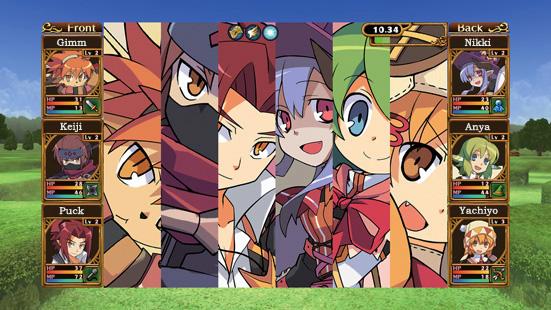
RPGSite: So that's when both of you guys first met and started to develop that business relationship with each other?
John: It's interesting because in Japan there's a lot of barriers to entry. And so, not that many people try, not that many people have the persistence and stamina to deal with long-term relationships. So Victor has been coming to Japan for a long time and it just made sense because you were there for so long and people start to trust you and you can start to do deals. It's the natural flow. A lot of Americans don't understand that. They're in and out, they only want to make money.
RPGSite: It feels like back then, they just stringed it game from game. Just one project, and they just move on from there. I mean, you have the Project X game where you have Namco, Sega, Capcom - all these companies coming together and after that, it just ends right there. It just seems that this business relationship, moving to the modern age, were you guys talking to each other about working on games?
Victor: Well, it started with Hudson Entertainment in the U.S. because we were out of touch after TTI and John was still in Japan and then he came to Hudson Entertainment and we kind of got crossed up when they were dealing with Miami Law. John said they had this game and they wanted to go to Miami to do some research on guns and location research. I set it up, and John asked me to go there with him, and I said of course. I got to shoot guns and we got to go to the port of Miami and go up in cranes. And we started talking when he was leaving Hudson Entertainment and it sort of evolved to where we are now.
John: A lot of things were natural. We started MonkeyPaw with a vision to bring some of the great Japanese games back to Western markets. There were so many left to die and I had seen so many at Hudson because Hudson was sort the treasure chest of a lot of old great games and it was like pulling teeth to get even Hudson to do Bomberman for XBLA. It took almost 6 months of negotiations with my own company. And I was President of the company on the U.S. side! So it was never easy to do these kind of things.
RPGSite: And it was this big success! And after they did Act Zero (laughter) you did that and moved to Xbox Live and Bomberman is still alive.
John: We were talking about this. One of the reasons for Bomberman's success was that when they made it in America with Japanese help and we created it and included all the things that made it great, including 8-player multiplayer.
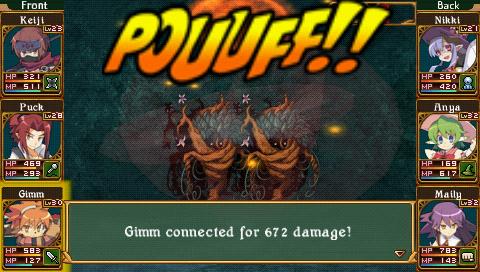
RPGSite: That's the thing. There was nothing really like it at the time. The success of that game made people follow suit and tried to recreate that feel of bringing a retro game back, like Arkanoid, Pac-Man, Asteroids, and stuff like that.
John: And BurgerTime!
Victor: Spelunker
John: That's where that comes from. Just because there are so many great mechanics they were left to die because the graphics weren't there or people got sick of them. You just have to reinvent them is all. It's like music. No music was ever born by itself. It's a product of other musics people listened to and its influence, and you amalgamate those influences and you come up with a completely new product that's not new, but a reinvisioning.
Victor: For a lot of people, 10-player Bomberman was legendary. They never brought it here, did they? You see pictures of it, and it was like, "Oh my god!" So with Bomberman Live you could finally get near the 10-player experience and it was 15 years before the high-def TV and the fact is was legendary helped the buzz because the most you had before then was 5-player Bomberman. The Saturn Bomberman at that point was 5.
John: We did a lot of research on Bomberman, and the Saturn was the most asked for version. And we took the best features we could come up with and made a new game. But once again, it's an amalgamation of all that came before it and put it up again and it's still fun to play.
RPGSite: You don't really think about it, putting online multiplayer into these games, with voice chat and other features. Do you think there are other old school classic games that should get that treatment?
John: Oh yeah. We were talking about this yesterday. We are releasing Tomba on June 19th and we could do a lot with that game. Well, not so much the game, but we can do a lot with Fujiwara-san. He is such a great game mind that wouldn't you love to see his next game?
RPGSite: Are you speaking to him a lot about the project?
John: It's more a matter of what can do with someone like him.
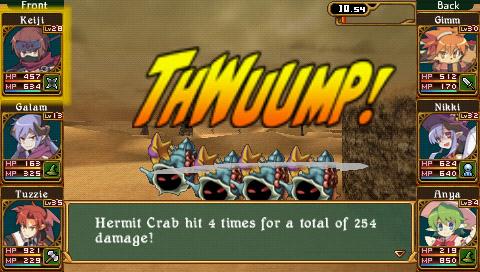
RPGSite: Is it a matter of bringing back these old games and then starting to develop a relationship with the original creators and go from there?
John: That would be a good scenario. BurgerTime was like that. We had success with Hudson. It was our best-selling mobile app. The brand still has app. For MonkeyPaw, we took that relationship and fast-forwarded it. We couldn't find the original creatorse, we asked what they would want and how to bring it in the 21st century and what we could come up with. People still want to play their old favorites, but it has to be modern or else no one will buy it.
RPGSite: Like putting Gauntlet on the new console and they take it away because no one's really buying it.
John: Well, you remember the first XBLA games and there were a ton of those, too. I forget who was doing it, but Konami was dumping a lot of these cheap titles.
Victor: Oh yeah, and Gauntlet was horrible on XBLA. They had dumb stuff like they clearly took the low-res sprites and drew over them to make them hi-res. They even had sprite mistakes like ghost animation. In the square of the sprite, every four frames you would see a pixel drop out of space because they didn't erase everything they overdrew. So they had a sprite overlap. They cut it out of a sheet obviously, so every four frames you would get a block of pixels from the next sprite over on the sheet. It was really cheap and terrible. The next frame of ghost animation is bleeding into the same frame. And it wasn't even high-def. They literally just traced the low-def image and called it good.
John: We actually had a hard time convincing Microsoft that our game was not the original BurgerTime. As a concept, you have to get approval before you start development. We were working with them on different levels. At first, they rejected it. Then we came back and showed them PlayStation BurgerTime and they really liked it. Their image for these shitty games that came out before, they didn't want to take on these low-res...
Victor: Or traced, or bad sound, where nothing was upgraded or addressed.
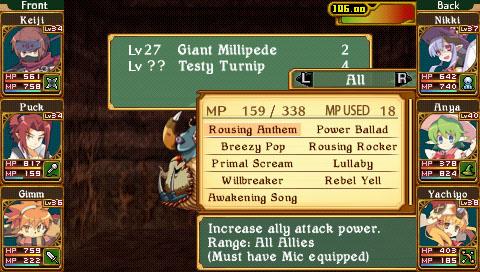
RPGSite: And that seems the reason that Microsoft had so many problems with these early games. And so, moving forward, you're doing a lot of work with Sony with digital games. How has it been going back to Sony after having less than exciting times. This is for both of you. It seems you're back on positive terms.
Victor: Well, the thing with games is that as fans, a lot of poeple think that I hate Sony so I hate Sony forever. And it's not the company, because within the company, the staff ebbs and flows. So Sega was...
John: *cough* Amanda Brooks
Victor: ...was pretty bad for a while. (laughter) The issues that we had in Working Designs, major issues, pretty much resolved when those people left. That period with Sony when we had a great relationship with Sony where we were even licensing Sony games. We had Alundra, we had Arc the Lad, we had big marquee titles. It was all great. And then there was this large staff change to people that didn't play games. They were not gamers. They focused more on graphics. With Working Designs and Gaijinworks. it was never about graphics first. It was about story, the gameplay, that kind of stuff. The graphics are nice, but the story is the big focus.
They didn't see that and that's where we had our problem. Well, they're gone, to people that understand games. We're back to a good situution with Sony. But it wasn't the company, it was the staff. That's the core issue. A company is only as good as the staff that's running it. And that's over. The people there now really want to build something cool and satisfy the hardcore gamers and provide instant access to these games that they knew and love from before - the old story and gameplay presented in a new way with better graphics.
John: First of all, I love Sony, so...
Victor: Oh, I love Sony, too! (laughter)
John: I love them for a different reason, and that's because for a long time Hudson was so married to Nintendo that all of the Hudson business with Sony went through me and Sony America because they didn't want to deal with Sony Japan to protect their relationship their Nintendo. My contact there went back almost 20 years. Basically, Sony has been unbelievably welcoming to us. And we made the Import Store. It's the first time they ever put out games that were non-translated. Giving us an entire storefront is a big step. And showing our game, showing Arc the Lad the other day at the press conference.
RPGSite: I was going to ask how you felt about having your games on the big screen? I mean, there's Final Fantasy VII, but here's also Arc the Lad being associated with these games and being promoted for the Vita.
John: They bend over backwards of us. They are so good at us. And whatever we need, they're there for us. Great partners, great partners.
Victor: And we got to work with Sony, too. Alundra won Best RPG of the Year the year it came out from Sony and we won Best Packaging from them, too. We still have the framed.
They gave us this great award for it.
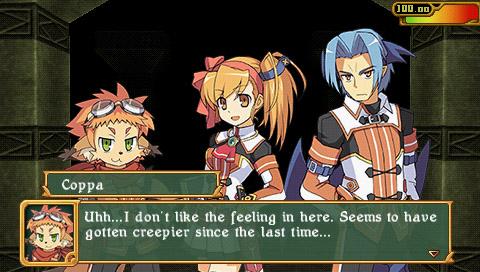
RPGSite: So how's your relationship been with Working Designs? The most recent game was Ragnarok Odyssey, and that's being taken up by XSEED, but do you guys still have a great relationship with Working Designs?
Victor: You mean Game Arts?
RPGSite: Yes, I'm sorry, I meant Game Arts! I associate them so closely together!
Victor: (laughter) So Gungho [Entertainment] owns Game Arts, as well as Acquire (publisher of CoH2), who made Class of Heroes. The deal we've done with Acquire is technically done with Gungho. So we still have a great experience.
RPGSite: Moving to Class of Heroes II, the original wasn't as well received. It has its fans, of course. Class of Heroes, a dungeon crawler, on a platform that sold really well. 75 million is nothing to scoff at when it comes to the PSP. But when you brought out Class of Heroes II, clearly there was work done to make it a better game. How has it been? I know you guys did the Kickstarter around the success of Tim Schafer so how has it been for you? Do you see fans coming out of the woodworks?
Victor: The Kickstarter was actually planned before Tim Schafer, just to be clear. We started talking about it a year before they launched that. It took about 6 months to convince John, and it took the rest of the time to get the deal in place. The Kickstarter Tim Schafer did was PC-based, so you don't need the approval that you need for the console. We had to run it by Sony, we had to have the deal in place. It's because when you're using somebody else's IP you can't say, "Hey, let's do a Kickstarter," and then license the game.
You have to have the game licensed and approved through Sony, so there's all this background stuff that had to happen that didn't have to happen with a PC game. It took us a lot longer to get to the point where we could launch it. And actually, I emailed John at that time talking about how [Tim Schafer] went first and beat us to it! And it took us another month after that before we were finally able to launch but we were well along the process that we had to have all these approvals that were out of our control. But as far as the Kickstarter experience... (looks at John)
John: The experience in general was... we didn't fund, but we got a lot of positives from this. Namely, everyone knows about Class of Heroes II now. There were a couple of things like how people were complaining about how we were asking for so much money. It's because it's a physical product on Sony. So we had to produce a certain amount of units, and then package and ship and all that.
Victor: And the Deluxe Edition. There was a lot of stuff in it.
John: There wasn't like where we could make it $100,000 and hope we get it. It couldn't work that way. We don't see it as not-funding as a failure, but basically marketing the piss of it which is great, and really getting a hold of how big our market is and what we can do with alternative products like this. Overall, a great lesson and if and when we do another one, we learned a lot and we have a much better visibility on what we can do with it.
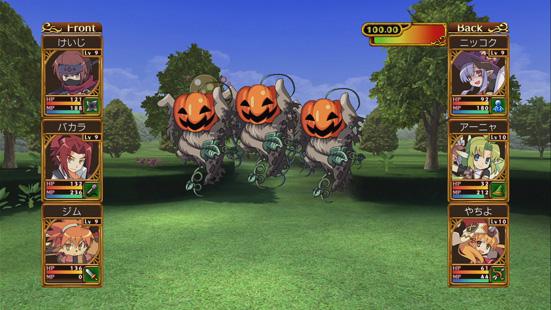
Victor: There were a lot of the mechanics of the platform, too, because there are some limitations on we didn't understand until launched, like changing reward levels and adding stuff. They changed the way it worked between the time DoubleFine launched and the time we launched in April. They changed the way it worked. They got to edit their reward levels, and by the time we got to it, you couldn't do anything to them. It was locked. If you had one person that wanted it, you were locked. And it made it really, really hard. It was a learning process.
We understand things much better with Kickstarter, so moving forward if we do it again, we'll have a much better understanding of what we can and can't do. They never verified to us that they changed it so we were like, "Thanks!"
RPGSite: People didn't seem to understand that you were launching a PSP game and a digital game. It's not like you were launching a PC or mobile version. People were saying you should have it where you pay $10 or $20 and get a free copy of the game. It's not like it was an indie PC game.
Victor: Sony is there, and they need to be paid and ACquire needs to be paid. There were a lot of licensing things that are just not there with PC games.
RPGSite: One of the things people were saying is that they just didn't understand the breakdown. You were asking for half a million dollars, and so many of them basically didn't know why because it's not something a lot of people know about. And there wasn't a video at the start.
Victor: Well, that was pretty much me because we didn't have a video in English, I was against putting up a video in Japanese. I felt like putting screenshots up and call it good. And then once everyone was like "Video, video, video!" I finally said OK, let's put a video up. It took about 10 days to get the video put together. It was a good video, but it was 10 days after we launched.
John: A couple of good things about it. One of the things we could follow was the forum. There was a great rapport of people talking about the game and what they liked and the Kickstarter and what they liked and didn't like. That experience was pretty interesting, and just the ability to gather fans' interests and have them sold. I think anyone that pledged on that site is going to buy the game, and going forward people may understand better about what we are trying to do that well and why the second one will. We can talk about the 3rd and 4th in Japan and what that's done. All that information you could get out over the whole month. People keep coming to checking in. It's a record. People will complain, but it costs that much to do it.
Victor: And that was our discussion. We could cut it down, but if we had launched at a lower amount there'd still be the same amount of work and then we're either breaking even or losing money at the end. Why would we spend 6 months doing this work just to lose money. It's crazy.
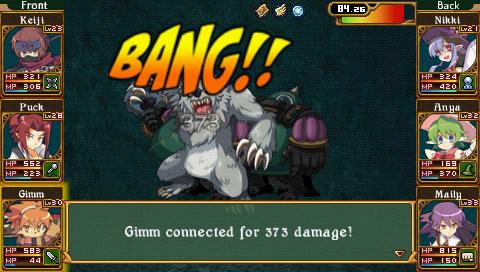
RPGSite: And not to mention, you're not the biggest company around.
Victor: We'll still release the digital version, and that's why we're okay with it. But there some crazy fans. There were people that pledged the $10,000. That's the man.
John: We had a $50,000 pledge in there, which basically means we would have put the character in the game and brought him to Japan to meet the developers and artists.
Victor: And the Prime Minister.
John: I would have taken him to some pretty fun places in Tokyo. You can't really describe that. And it would have been money well spent and they would've had a pretty dang good time.
Victor: And I can vouch for that. The first time in Japan with John. Crazy. It was eye-opening.
John: Japan's a crazy place. Akihibara's huge now because of moe. Now it's unbelievable. It's one of the most happening spots in Tokyo now. That and AK48 (large idol group). Akihibara has had a huge renaissance and it's partly because Acquire is there. You have to go past all of these moe places before you get to their office. I talked to my contact there and I told them that there was this staircase and there all these scary-looking guys going up there. And he told me it was this sexual moe place. So anyway, we've gone way off topic.
RPGSite: No, that's okay! What I wanted to ask was that, based on the success of Class of Heroes II, there are plenty of big games that people have been asking for. You have games like Last Ranker, Idolmaster...
Victor: Why did you point at me with Idolmaster?
RPGsite: Because you talked about it! You're a fan, apparently.
Victor: Oh, okay. I am a fan, yes, but not for the wrong reason!
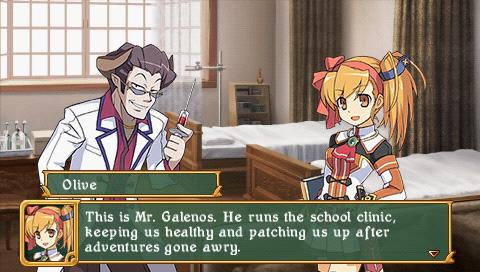
RPGSite: And then you have the Saturn games that people seem to love a lot. You also have people asking where Lunar: Silver Star Story on the PSN. Nothing against Tomba, of course. It's a game people seemed to forget and then once it came back, people remember the fond experiences they had riding pigs. Is it a matter of funding that's keeping you guys from being able to get these licenses?
Victor: It's not funding. A lot of the games you talked about are ones we are pursuing. It's back to the Japanese thing. It takes a long time. You have to talk, and talk, and talk, and find a way in and find out what's stopping it from happening and how we can get around it. A lot of the time you hear a No. When I hear that, I hear that there's a problem, and it's John's or my job to find a way around that. So a lot of those you talked about, there's a problem and we have to find a way around that. By and large, it's not a funding issue, it's an issue of relationships and spending the time to get that license. We are pursuing at least two dozen games.
John: We have a laundry list of games and it's a matter of which ones we can get through.
RPGSite: Is the fact that Japanese society is becoming more mobile and publishers are less willing to put together large budgets for building big console games been an issue?
John: It's more a matter of just the Japanese market moving away from the console. If you're talking retro, it's different, but moving forward there are less players. And if you're making a role-playing game for your own market? I don't really know how these guys do it.
Victor: Yeah, I've always wondered that!
RPGSite: I like to think JRPG influence is in a cycle and that it will come back and people will start to get into them again like it was a few years ago and 10 years ago.
Victor: Like Boy Bands?
RPGSite: Yeah, like Boy Bands. Fighting games is more what I was thinking of, actually. (laughter) You have Sakaguchi-san bringing over Last Story and you have Xenoblade where Nintendo is unsure of it. How has it been being a big RPG fan seeing how things have been lately?
Victor: For me personally, it kind of sucks that it's definitely on a lull. But like I said before, I really think like you do that it's cyclical. It will swing back up again. Part of the problem is the bad influence of the moe stuff. I mean, there's a ton of moe stuff and it's kind of a me-too situation where everyone wants to do it.
RPGSite: Like Ore no Imouto where you want to play with your little sister all the time and it's one of the biggest selling games right now.
Victor: Yeah, there are some bad aspects to it. And Idolmaster is the same thing - it has weird stuff in there where it's like we have to fix it for the Western market if we want to do this. I think it's cyclical and I think that the people that are talented that are doing it are managed by people who are doing it because they see the market the way it is and see the moe market and want to make a moe game so they're being told what to do. As those developers age in the system and become producers, they will soon be able to somewhat dictate what games their team makes and then they will make the games they want to make as opposed to games they are being told to make now, which is a lot of moe stuff.
I think then it will swing back towards another RPG renaissance. We peaked around 7-9 years ago. It was tremendously popular in the 90's and in the early 2000's and now it's down on the low side. It's almost like the cycle of the sun. It's a thirteen-year cycle. So we're on the lull and we're on our way to a solar maximum. The RPG maximum is coming up. I like to think we're on the upswing.
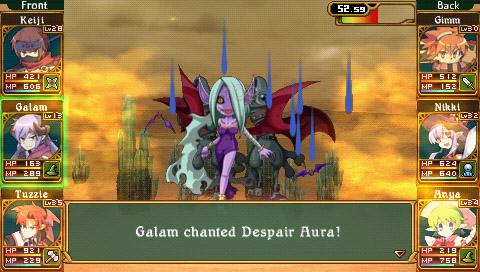
RPGSite: Do you see yourselves doing another boxed retail game again?
John: We think of it as kind of a one-off. This Kickstarter was exactly that. We're not going into retail because we think fans are there for that, especially Victor's previous history of putting out deluxe boxes that spoke to that certain group of fans. If there's an opportunity, sure, but to go into retail? Absolutely no way.
Victor: There's a lot of considerations. A small, limited box thing direct to consumer is fine. But a straight retail distribution? That's not where the market is going, and we're definitely headed in another direction. I mean, I still love the physical product, but I think direct distribution to consumer or digital distribution is the way of the future.
RPGSite: Would you ever consider putting the Deluxe Edition [of Class of Heroes II] and putting it online for fans to buy on a case-by-case basis?
Victor: Probably not, because the thing is there is so much money involved in making it you would have to have to make a certain amount for it to be cost effective. There's an economy of scale. If you just make 100, it would cost 100 times more to make than making 5000. You have to keep going up before you get to an economy of scale where it makes sense and you can deliver it for a certain price.
RPGSite: Not even a contest?
Victor: It would have to be pre-sold. Some way to pre-sell or pre-order it so we'd know we'd make a minimum number of sale before we moved forward with it.
RPGSite: Do you think next you guys will have your own booth next year at E3?
John: No. Are they going to even have an E3 next year?
RPGSite: They're going to Chicago, right? New York or wherever it is? They said they might move it.
John: I heard that, too.
Victor: Okay, the last time that happened it was a disaster.
RPGSite: You want to go to Atlanta again?
Victor: Oh my god, Hot-lanta? I never want to go there again. It was terrible. Everyone was hot and mad. It was awful.
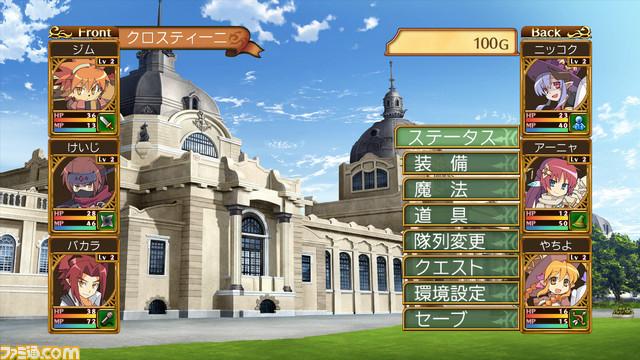
RPGSite: So this is more of a means to reach out to other companies and talk to Japanese designers and developers who are visiting?
John: It's funny because I usually stay in Torrence becuse the Japanese are in Torrence. So even though I am living in Japan, I still want to meet them at any time and point, because they are all thinking about the U.S. market when they're here. But I would never have a booth.
Victor: A booth costs, what, $50,000 to $100,000? That's a lot of money for one place with the company the size of ours. That's a lot of money. I'd rather keep $100,000.
John: Yeah, and this is mainly a retail show, anyway. It always has been. The buyers are coming in to look at the game. That's the way it's supposed to be, anyway. Back in the day they used to play games but nowadays it's more masturbation...
Victor: What's your show about? That's not my show!
John: Well, I mean look how big we are? Buyers are not coming here to look at the games. These games are being pre-sold as they're coming into the market based on how much marketing they are going to put behind them and what's left in their pipeline so they will have to trade this game that they didn't sell for the new game. It used to work that way back in the old days of CES where it used to be a Buyer's Show. But nowadays, it's more of a press spectacle. A lot of companies would like to get out of E3, more honestly.
Victor: For us and our target market, the shows that make more sense going forward is PAX and Anime Expo. That's where our fans are going to be, so if we want to have a marketing impact that's really going to make a huge difference for us, it's those shows. That's where the fans that would buy the games that we sell would be.
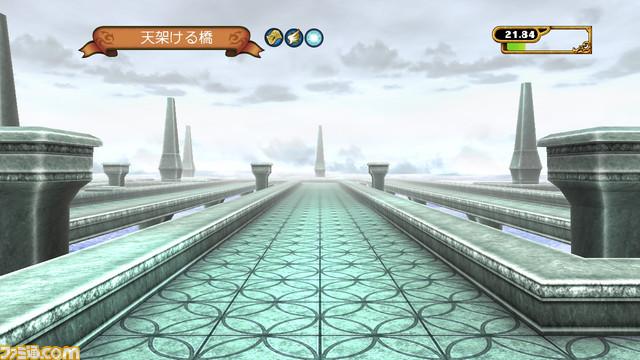
RPGSite: So final question, sell people on Class of Heroes II.
Victor: If you played the first, there's something for you. There's a story arc that resolves itself with the school from the first. A lot of things from the first game have been streamlined and it's a lot more fun to play. I personally thought Atlus should have started with 2. Random dungeon instances are gone, appraisal of random loot you pick up is gone and you don't have to pay a bunch of money to find out what you got. It's a much more fun, streamlined game experience. If you didn't play the first game, you don't need to have played it in order to understand what's going on. The game is standalone enough where you can still enjoy the game.
It still has the crazy, wacky stuff like the cross-dressing professor. He's the alchemy professor, Gorgio, and we made him the professor of alchemy and cosplay. There's a self-referential thing of him evaluating your characters in their cosplay awareness and how they're dressed. It sort of explains the U.S. market and which... that kind of character is really popular in Japan, but it doesn't make a lot of sense in the U.S. market. They don't get it. So by making him the professor of alchemy and cosplay, it kind of explains it and makes it a self-referential thing and you can have fun with it in the text.
There are about 200 dungeon maps in the game; over 100 monsters; there are 10 races, and unlike the first game, the classes are delineated by race so whatever race will pick will define the class you become whereas in the first you could choose and race and any class. There are at least 40-50 hours in gameplay but you could play it in 20-30 minutes at a time.
RPGSite: Are you guys looking at [Class of Heroes] 3 and 4, then?
Victor: I would like to do 3 and 4. The thing that is nice about is that - well, please support us so we can - the thing that is nice is unlike most sequels, every game in the series has rated higher than the one before if you look at Famitsu. 2 rated higher than 1, 3 rated higher than 2, and 4 rated higher than 3. And I think part of that is because the Famitsu people are becoming fans of the series so when the new one comes out, they have a predisposition to enjoy the game.
RPGSite: And that's about it. I had a lot of fun talking to you guys, and I hope we can meet again next year to talk about the games you are working on then!
I would like to personally thank Victor and John, along with Ray Almeda, the PR Manager for MonkeyPaw Games who helped arrange all of this and also provided the header image. What did you guys think of the interview and their views on the industry among other topics? Let us know in the comments below!37167